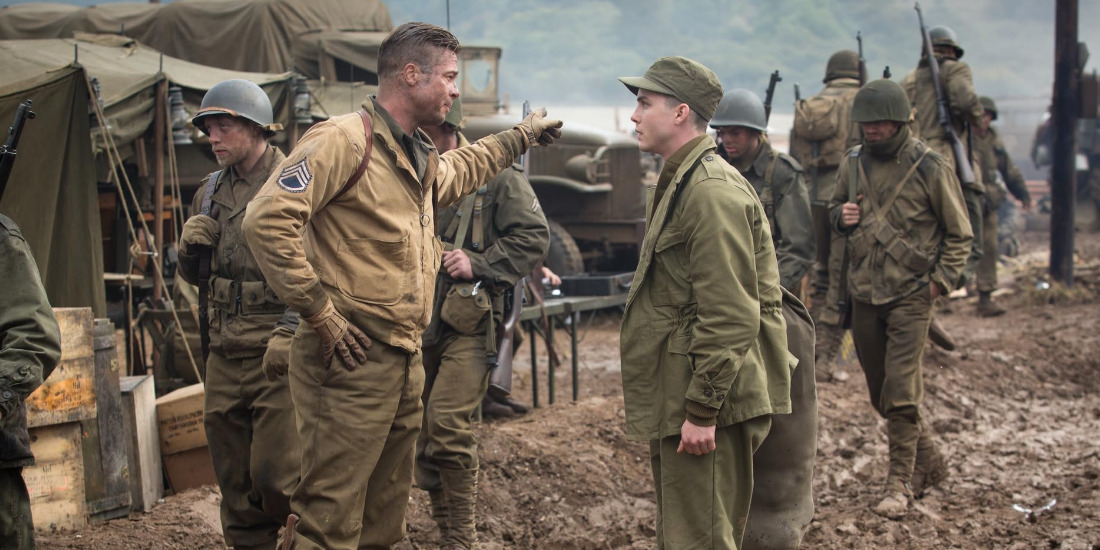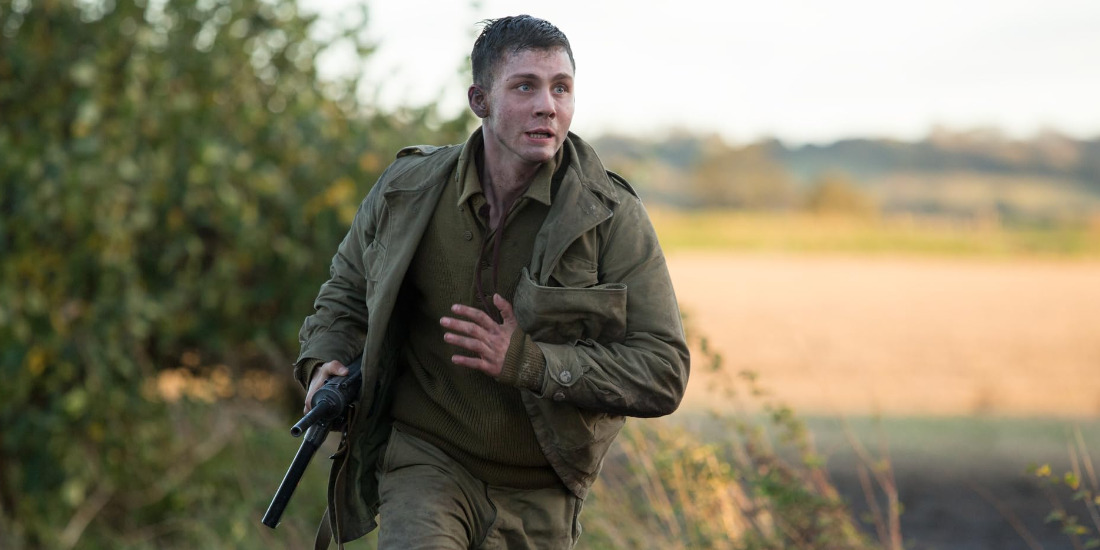In David Ayer’s 2014 World War II film, ‘Fury,’ the audience follows a battle-hardened tank commander, Sergeant Don “Wardaddy” Collier, and his crew as they undergo the brutalities of war while stationed in German enemy territory during April 1945. The film closely follows the characters of Norman Ellison, a newbie soldier who can’t fathom the war’s ugly truth until confronted with it. Under Collier’s weary wing, Norman goes from a rookie tank gunner to a capable soldier, scarred and filled with hatred against the Nazis in a matter of days. However, as the story comes to an end following Wardaddy’s crews’ multiple missions, the narrative finds Norman and his comrades in an impossible situation where they’re faced with a decision to fight or flee.
During this final altercation, Collier and the rest of his team willfully make the decision to self-sacrifice and face their enemies head-on, refusing them the satisfaction of an easy win. As each character’s storyline comes to its cruel end, Norman’s ending as the lucky sole survivor is bound to ignite curiosity among the viewers. SPOILERS AHEAD!
Norman’s Ruthless Transition Into a Soldier’s Life
Sergeant Don Collier, better known by his nickname Wardaddy, and Norman Ellison, the American citizen-turned-soldier freshly arrived in the middle of a hellish war, helm the film’s narrative. Thus, their mentor-mentee dynamic remains a constant throughout the story, with the jaded Collier attempting to mold Norman into an ideal soldier to ensure his survival. The older man has been on battlefields long enough to know the cost of surviving a war.

As such, Collier knows better than anyone that a soft conscience and rigid humanitarian morals do not lead to a soldier’s survival. Therefore, Norman, who never anticipated his current predicament, has a long way ahead of him. Nonetheless, given the circumstances, the boy’s reluctance to kill will sooner lead to his and his squad’s deaths before he can learn. For the same reason, Collier cracks down harder on Norman to shape him into the soldier he needs to be for survival.
During their journey, a few instances provide expensive learning lessons for Norman. During his first outing as a tank gunner, Norman hesitates to shoot at a young Nazi boy-soldier. As a result, Norman’s fellow soldiers fall victim to the enemy’s ambush attack. Furthermore, after a successful town takeover against the SS soldiers, he initiates a whirlwind momentary romance with a German woman, Emma. Although the same provides him with a taste of domestic bliss, it’s soon taken from him during a bombing raid.
Consequently, within a few precious days, Norman loses his bright-eyed idealism that once paved the way for his insistence that he would sooner die than fire on an unarmed German soldier. With his virtuous notions of the world obliterated, Norman becomes a better soldier who understands that on a battlefield, the question is always kill or be killed.
For the same reason, once Collier’s sole tank crew arrives at the crossroad that requires protection against the incoming SS battalion, Norman is one of the first of the crew who chooses to stay with his Sergeant. Thus, in the end, Collier and his entire team, including Norman, Bible, Gordo, and Grady, face their demise as they stand outnumbered and outgunned by the German forces.
Norman And The German Soldier: Two Sides of The Same Coin
The film’s final act finds our protagonists’ on an undertaking easily classified as a suicide mission. Collier’s unwillingness to leave crucial American routes and supplies to the SS for the taking compels him to stay behind and plan an ambush attack against his enemy. Likewise, his valorous example inspires the rest of the crew to stay behind and increase their leader’s chances of defeating the enemy. Even though their tank, nicknamed “Fury,” has lost its tires to a mine, and they’re likely to be easily overpowered by the Germans, Collier and his crew stand their ground.

After a few preliminary preparations, the crew concealed themselves inside their tank, disguising it to appear abandoned and wait for the perfect moment of impact. As a result, soon after the SS Battalion’s arrival, the scene turns into a merciless battlefield. The Fury crew gains an advantage through their element of surprise, yet the Germans surpass them in brute force and manpower.
The battle labors far longer than it would have without the Fury crew’s refusal to give up. Every member fights until their last breath, hellbent on making each bullet count by ensuring they live long enough to kill just one more Nazi. Still, eventually, the tide catches up to them, leading to the crew’s death, one member at a time. Near the end, Norman and Collier remain the last ones alive, fresh out of ammunition, boarded inside the tank for a few moments of safety.
Collier is badly hurt, and Norman is desperate enough to consider surrender. Nonetheless, the former encourages his young ward against it. Instead, he advises Norman to drop under the tank through a hatch and hide himself to the best of his abilities. The younger man complies and hides in the mud under the tank as the SS soldiers invade the tank to finish Collier off. After finding the tank empty, the German soldiers assume they have defeated their enemies.
Yet, one young German soldier peers under the tank with a flashlight and glimpses at Norman’s form. The American soldier can only wordlessly implore the other to spare his life. Astonishingly enough, the German soldier does. His actions go against everything Norman and the audience have come to expect of the SS soldier. Throughout the story, the enemy army’s wicked nature is highlighted. The SS execute citizens who refuse to fight for their country and shoot at their own in self-preservation. Even so, one young German soldier allows Norman his life.
The same actions come under a different light once we consider the nameless soldier’s role within the larger scheme of things, especially in comparison to Norman. Norman entered the narrative as a fresh-faced boy, barely an adult, who was ripped away from his life and dropped in the middle of a brutal battlefield. However, in times of war, the same logic is applicable to enemy armies. Since the German state had ruled every citizen— man, woman, and child— to fight the Allies, many of the soldiers who fought for the SS were a product of their circumstances.
The German soldier who spared Norman’s life was one such individual, a young boy who was fighting someone else’s war. Therefore, the boy peeks at Norman, his own mirror image, who has never wanted to kill or be killed, and he decides to impart one small act of compassion that ends up saving Norman’s life.
The next morning, another squad fighting from the Allies’ side finds Norman and rescues the man. In a few weeks, the Second World War comes to an end, diminishing the necessity for ruthless soldiers who will kill their enemies on sight. Instead, the world perhaps turns to people like Norman, who hesitated to kill in the name of virtue, and the young German boy who saw an American fighting for his life and allowed him a fair chance at it.
Read More: Movies Like Fury


You must be logged in to post a comment.